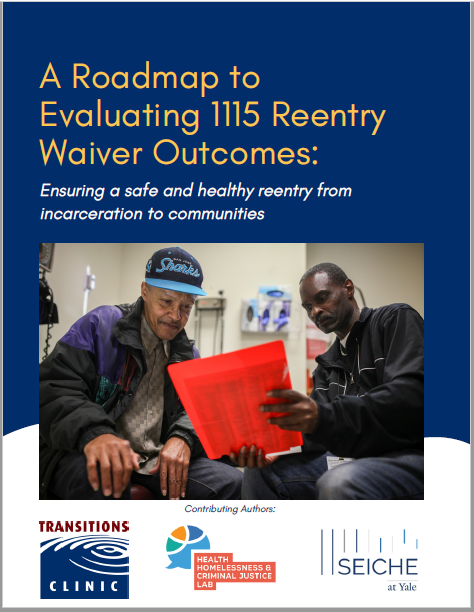In a recent letter to state Medicaid Directors, the Centers for Medicare and Medicaid Services (CMS) encouraged states to apply for the 1115 Reentry Waiver, which would for the first time expand Medicaid coverage to individuals during incarceration. This expansion presents an opportunity to develop consistent standards of healthcare quality in correctional health services, pre-release services, post-release services, and community reentry. CMS highlighted that states must include a plan for evaluating the success of their waiver.
The Transitions Clinic Network (TCN), the SEICHE Center for Health and Justice at Yale, and the Health, Homelessness, and Criminal Justice Lab at the Hennepin Healthcare Research Institute
developed a comprehensive roadmap for program evaluation and quality measurement, informed by existing evidence, to assess the quality of care delivered to justice-involved populations and the effectiveness of Reentry Waivers.
Download a copy of the Roadmap here.
Every year in the US, more than 650,000 people are released from prison and 9 million more return to their communities from jail. Upon return, they are some of the sickest and most vulnerable members of society.
We developed this roadmap to guide policymakers to in planning the evaluation of their 1115 Reentry Waivers.
Stay up-to-date on our news and releases.
Download the policy brief and sign up for our mailing list.

